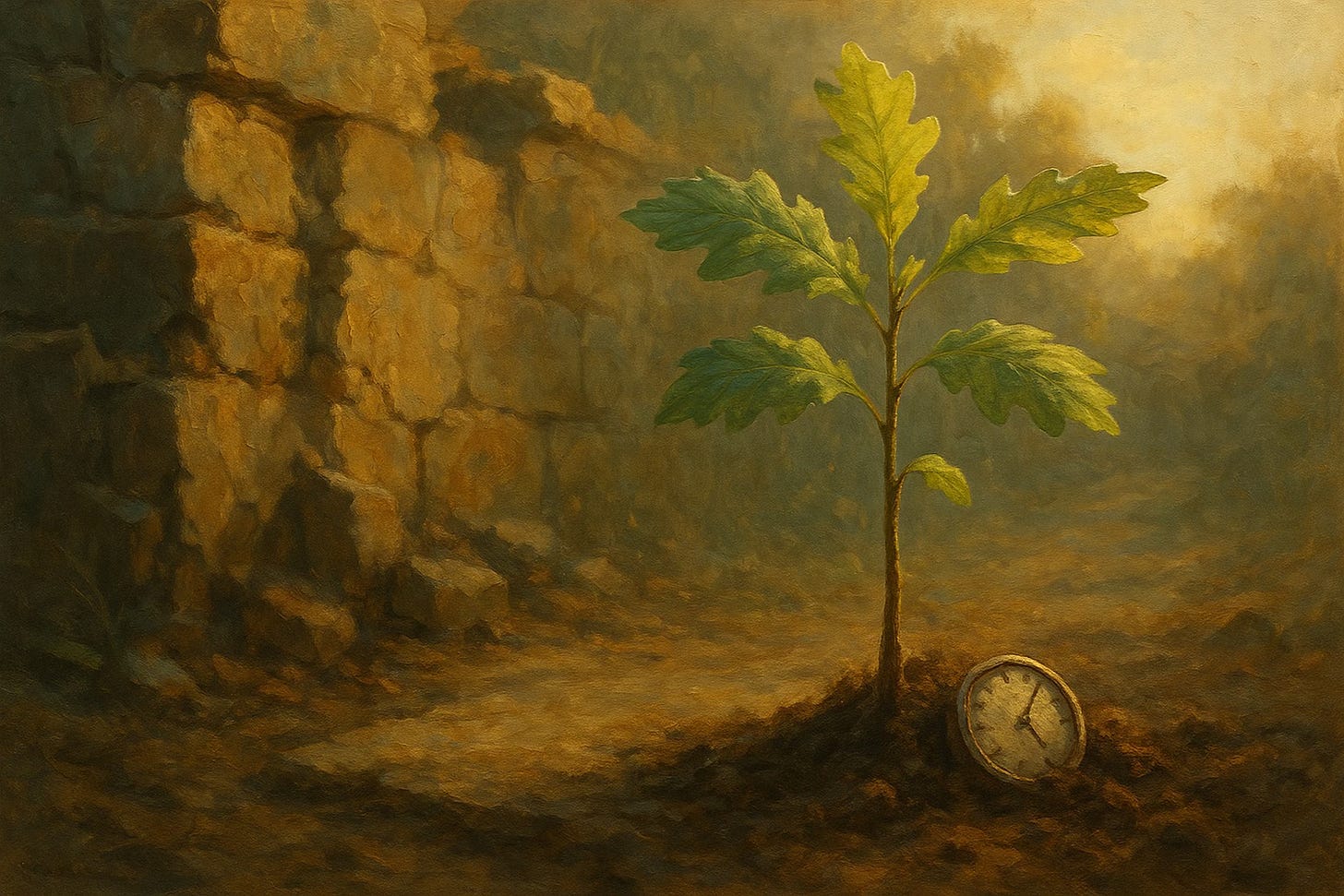The Compound Effect: How Little Wins Reshape Your Entire Life
Life refuses to be microwaved.
We live in a world that craves shortcuts. Fast money. Fast bodies. Fast spirituality. Everyone wants the summit without the climb.
But the truth is written in biology: bones don’t heal overnight, muscles don’t grow after one workout, trees don’t shoot to the sky in a season.
The soul is no different. Real change compounds. Slowly. Quietly. Sometimes invisibly.
Chasing Relief vs. Growing Roots
When I was in the grip of addiction, the appeal was simple: instant relief. One swallow, one hit, one rush—and the ache was gone. At least for a moment.
But when I got sober, I tried to bring that same mindset into life. I wanted to rip transformation out of the air the way I ripped euphoria out of a bottle. I thought if I prayed hard enough, read the right book, worked out the right way, I’d suddenly become the man I dreamed of being.
It doesn’t work that way.
Life refuses to be microwaved.
Healing Takes Time
I’ve broken a lot of bones. One of the worst was a rib—you can’t cast it, can’t move it, can’t force it better. You just have to let the biology of healing run its course.
If I’d demanded my rib heal in a week and went back to lifting, I would have been a fool. Yet that’s exactly how I treated my spirit: demanding it heal on my timeline, not life’s.
The compounding effect is humbling. You can’t see the progress in the moment. But one day, weeks or months later, you wake up and realize—you’re stronger. The wound isn’t throbbing anymore. The weight doesn’t crush you like it used to.
The Math of Character
Little wins don’t look like much. One workout. One journal entry. One prayer whispered half-heartedly before bed.
But they’re not about the action in isolation. They’re about training yourself to keep showing up. Each act is a deposit in the bank of your soul.
And like compound interest, those deposits grow into something unrecognizable over time. Character is built this way—not in dramatic gestures, but in the slow math of consistency.
Here’s the part nobody wants to hear:
Compounding works in reverse, too.
Neglect compounds. Excuses compound. Every skipped workout, every broken promise, every “I’ll do it tomorrow” piles up until one day you look in the mirror and don’t recognize the person staring back.
👉 The deeper story of how this reverse compounding plays out—and how to turn it around—continues
The Other Side of Compounding
The Gravity of Neglect
Neglect doesn’t announce itself. It slides in quietly. Skip a day, skip a week, make peace with mediocrity, and suddenly your life has been shrunk down to the size of your excuses.
It’s like erosion: slow, unnoticeable, but relentless. Until the structure you thought was solid crumbles beneath you.
Interrupting the Spiral
The miracle is that the spiral can be broken at any moment. You don’t need a grand plan. You just need one act of defiance: one workout, one prayer, one honest conversation.
One act of faith is enough to puncture the lie that says, “You’ll never change.”
Pain as a Compass
Pain is not your enemy—it’s your most honest teacher. That gnawing discomfort, that ache of regret, is life’s way of saying, This is not who you’re meant to be.
Instead of numbing the pain, lean into it. Let it point you back toward growth.
The Long Game of Grace
You’ll stumble. You’ll break promises. You’ll quit on yourself more than once.
But grace means you can always start again. Grace means failure doesn’t erase the work—it becomes part of it.
Compounding is not perfection. It’s direction. Every small win tips the scale a little more toward who you were always meant to be.
Final Word
Change is slow. Growth is stubborn. But that’s what makes it real.
You don’t rip transformation out of life. You grow it, little by little, win by win, until one day you realize you’re standing on ground you once thought was impossible to reach.
The compound effect is always at work. The only question is: which way is it compounding for you?
Thank you for your love and support. It means the world to me.
- Scott


